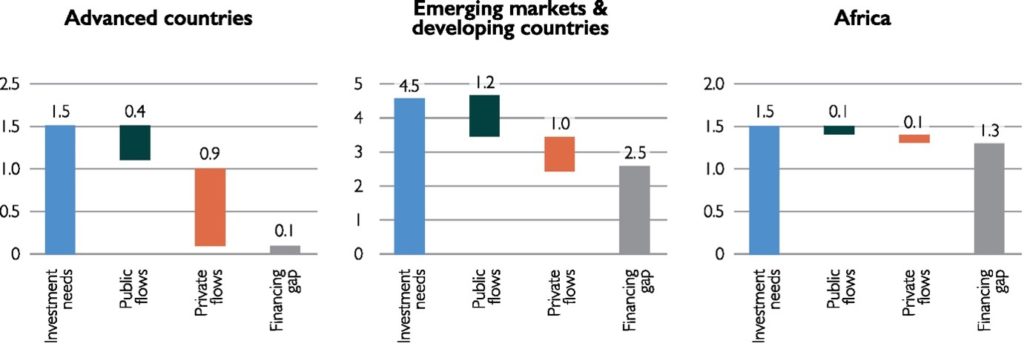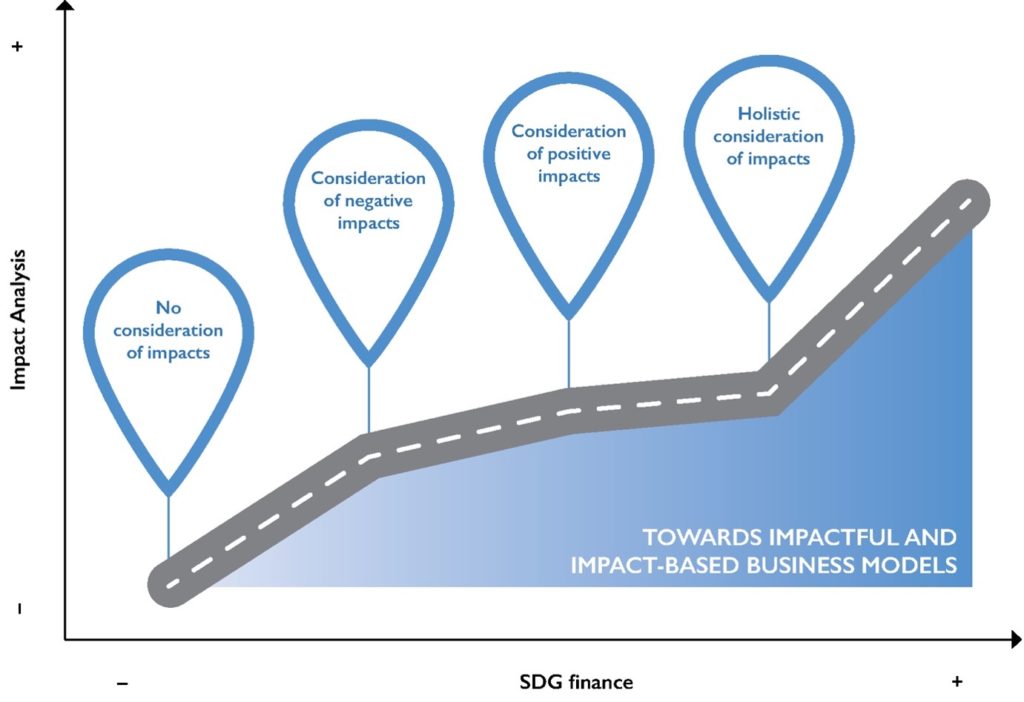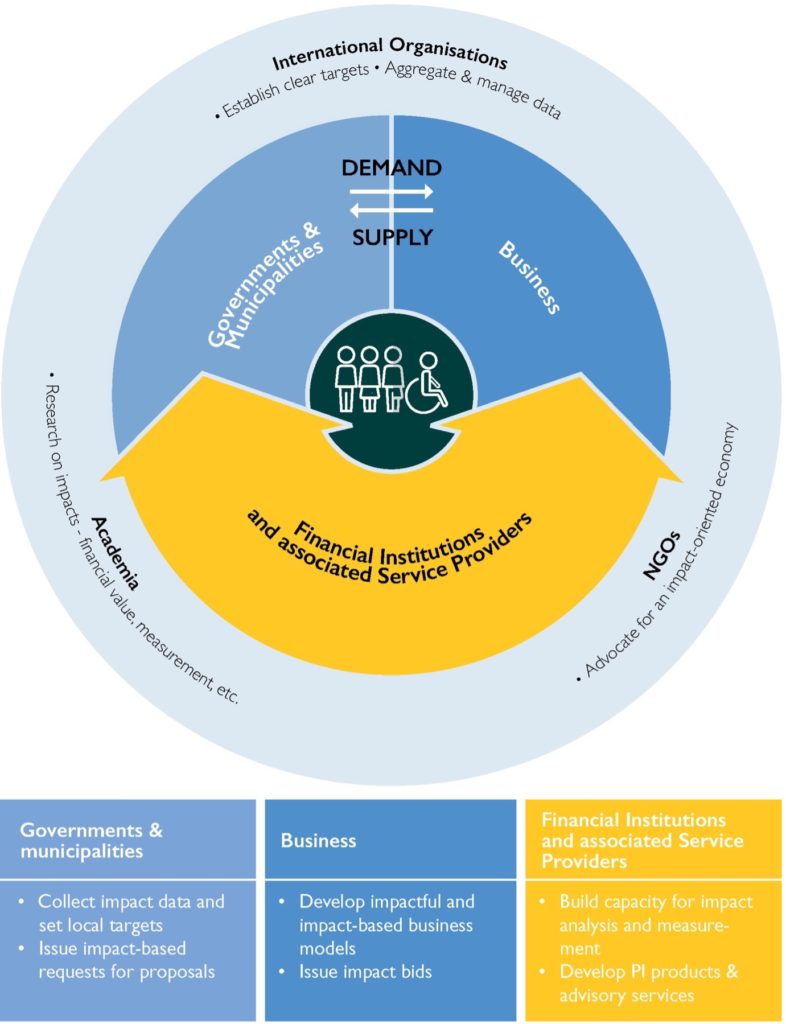Social, economic and environmental impacts have an as-yet under explored potential to generate financial revenues: impact-based business models can be developed, with the delivery of positive impacts as a driver of sustainable business growth and long term enterprise value.
This could be game-changing: by making it cheaper to deliver sustainability outcomes, less risky to finance and would stimulate the private sector to create new business solutions that focus on positive impacts. In fact, this shift to an impact-based economy is already under way, and the finance sector has a strategic interest in understanding impacts, not only to meet stakeholder needs, but also to capture new opportunities that support this transformation. Accordingly, it is critical for banks and investors to improve their capacity to understand and analyse impact.
Rethinking Impact is not just for financial institutions, but also for businesses, national and local public authorities, academia, civil society and everyday people. Only by working collaboratively across all stakeholder will the Global Goals be achieved.
1. Are the Sustainable Development Goals (SDGs) beyond reach?
Investment needs for the SDGs are huge, and the scale of current financial flows is as yet insufficient. Private finance is constrained by risk and return requirements, while public finance is in scarce supply. If the resulting financing gap remains unresolved, investment needs will grow over time because of a cumulative effect. Are the SDGs beyond reach? Or could business models be rethought in ways that would increase SDG serving financial flows, but also make them less risky? And could the cost of achieving the SDGs be brought down?
Figure: SDG annual financing gap – advanced vs. EMDEs vs. Africa (in US$ trillions)

2. The SDG financing gap is symptomatic of a business model gap. Impacts can be used as a starting point for business models and generate revenues. This can reduce costs, address certain risk issues and catalyse private sector solutions.
Impacts have an as yet under-explored potential to generate financial revenues. New, impact-based business models can be developed, where the delivery of positive impacts is a driver of business success. The two core features of an impact-based economy are to work back from impacts to come to the right investment decision, and to achieve as many impacts as possible through each investment. Impact-based business models can also serve to mitigate risk, while their digital components can help reduce costs. Altogether, these models could play a key role in bridging the financing gap for
the SDGs.
Figure: The multi-impact lamppost

3. On its impact journey, the financial sector needs to embrace holistic impact analysis.
There is pressure from policy-makers and civil society on business and finance to deliver positive social, environmental and economic impacts. At the same time, positive impacts can generate new financial revenues. The finance sector has a strategic interest in understanding impacts and can play a central role in facilitating the transition to an impactful and impact-based economy. Accordingly, it needs to improve its capacity for impact analysis. The Principles for Positive Impact provide a meta-framework with a holistic definition of impact to complement and promote convergence among the growing body of impact-oriented methodologies and standards.
Figure: The Impact Journey

4. A call to action: towards an impact ecosystem to accelerate positive impact and achieve the SDGs.
No one will achieve the SDGs in isolation. We need an impact- focused ecosystem involving all stakeholders – the private and financial sector, but also the public sector, academia, civil society as well as individuals and their communities. It’s time for the growing impact movement to accelerate; more coordination and collaboration between stakeholders are needed to create an impact ecosystem. Key focus areas should be: consolidating finance sector impact frameworks, organising impact demand and supply, and further developing impact metrics.
Figure: An impact ecosystem to finance the SDGs


